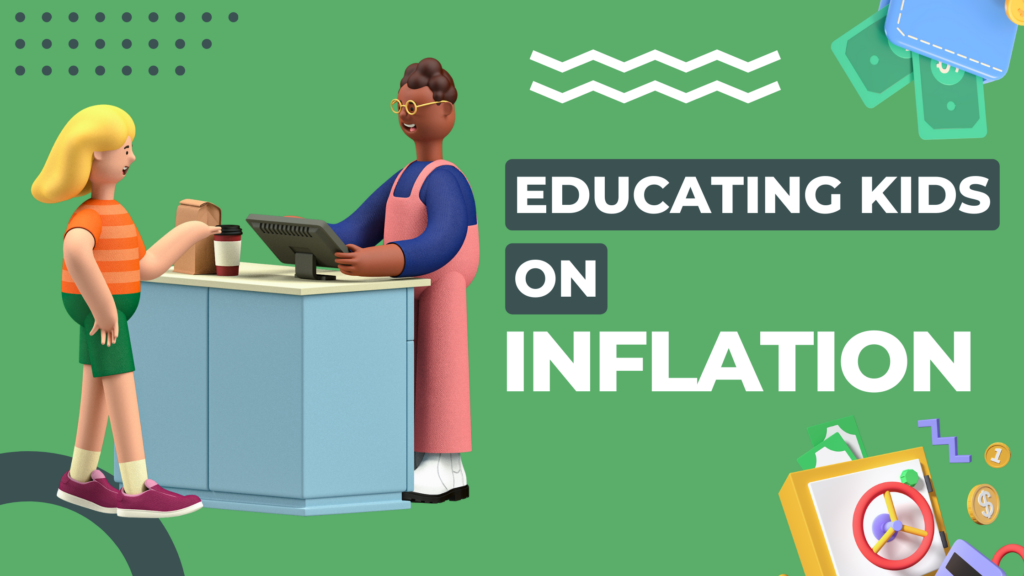
Educating Kids on Inflation
The other day, I took my son out for a burger and I was shocked by how expensive it was. As we sat down to eat, I couldn’t help but think about the impact of inflation on our daily lives. As a parent, it’s important to teach our kids about inflation and how it affects their financial future. Today, I’ll provide a brief explanation of what it is, how it’s relevant right now, and some tips on how you can educate your kids on this topic.
What is Inflation?
Inflation is the rate at which the general level of prices for goods and services rises and, subsequently, the purchasing power of currency decreases. In simpler terms, it means that the costs of goods and services is going up over time, so the same amount of money can buy you less than it could before.
How is Inflation Relevant Right Now?
Inflation has been on the rise in recent years, with many factors contributing to this increase. Some of the factors include the pandemic, disruptions in the supply chain, and increased demand for goods and services. This increase means that the cost of everyday items, such as food, gas, and housing, is going up, which can impact families’ budgets and financial planning.
How to Educate Your Kids on Inflation
Talking about inflation with your kids doesn’t have to be intimidating. Here are some tips on how to make it understandable and relevant to them:
- Start with the basics: Explain to your kids what it is and how it affects the cost of goods and services.
- Use real-life examples: Point out examples of how it affects the prices of everyday items, like the cost of gas or groceries.
- Talk about the impact on savings and investments: Discuss how inflation can erode the value of savings and investments over time and how to plan accordingly.
- Encourage critical thinking: Challenge your kids to think about how it affects their daily lives and how they can adjust their spending habits to cope with it.
- Stay up-to-date: Keep an eye on the news and discuss any developments with your kids.
Inflation means that the costs of goods and services is going up over time, so the same amount of money can buy you less than it could before.
Questions to Get the Conversation Going
Here are some open-ended questions you can ask your kids to get the conversation going:
- Have you noticed any changes in the prices of things you buy regularly? How do you think that has affected our spending habits?
- What are some ways we can adjust your spending habits to cope with inflation?
- How might inflation impact your savings and investment plans? What steps can you take to mitigate that impact?
- Why do you think inflation is happening right now? What are some potential consequences of rising inflation?
By asking your kids these questions, you can encourage them to think critically and assess how their financial future may be impacted.
Inflation is a topic that affects everyone, and it’s essential to educate our kids on how it impacts their financial future. By starting with the basics, using real-life examples, and encouraging critical thinking, we can make the topic more understandable and relevant to our kids. And by staying up-to-date and discussing developments, we can help prepare our kids to make informed financial decisions. So, the next time you’re having dinner with your kids, try asking them some open-ended questions about inflation. By doing so, you’ll encourage them to think critically about their financial future and help them develop good habits for managing their money.
